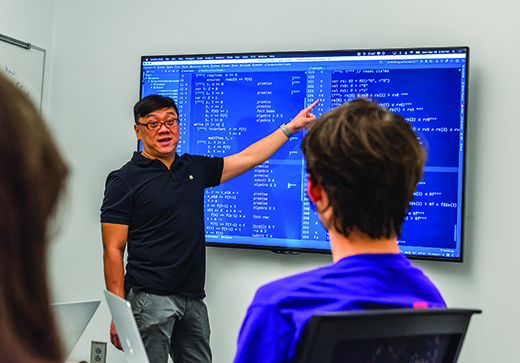Computer science professors join team effort to thwart effects of cyberattacks
Thursday, Oct. 4, 2018

Kansas State University computer science professor Robby is principal investigator of an $800,000 project to fight cyberattacks. | Download this photo.
MANHATTAN — Development of safety- and security-critical systems that can resist and recover from cyberattacks is of increasing importance for both military and commercial domains such as avionics, medical devices and the internet of things.
Kansas State University computer science professors Robby and John Hatcliff, and their collaborators at Adventium Labs, Minneapolis, Minnesota, have joined an international U.S. Defense Advanced Research Projects Agency, or DARPA, Cyber Assured Systems Engineering, or CASE, team led by Rockwell Collins, Cedar Rapids, Iowa, to meet this demand.
Their project, "Cyber Assured Systems Engineering (CASE) TA5: Architecture Translation for High-Assurance Embedded Systems with Separation Kernels," will focus on high-assurance, model-driven development of cyber-resilient embedded systems. Total amount of the subcontract is $800,000 for the three-phase period of performance through January 2022.
Other team members include Australia's leading data innovation group, CSIRO's Data61, and the University of Kansas.
"The approach will incorporate Data61's special microkernel that controls system component interactions, thus making security problems or failures in parts of the system much less likely to impact other components," said Robby, the principal investigator on the project.
The microkernel interactions will be verified using computer-checked mathematical proofs that provide high levels of trust and help establish confidence in the critical system's safety and security.
"This project will produce tools and engineering approaches for building high-confidence cyber-resilient systems," Robby said. "Such techniques are crucial for dealing with increasing automation and use of computers and networks in many types of systems."
The undertaking supports goals of Kansas State University and the College of Engineering in research, scholarly and creative activities, and discovery, in areas where faculty members and their research associates perform decidedly visible work on high-assurance and cyber-resilient techniques for safety-, security- and mission-critical systems.
